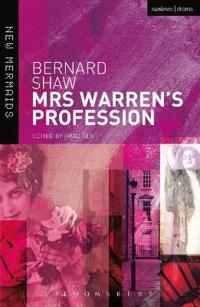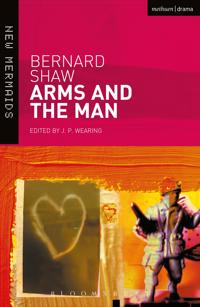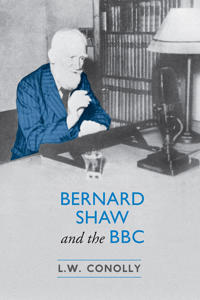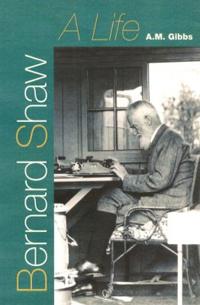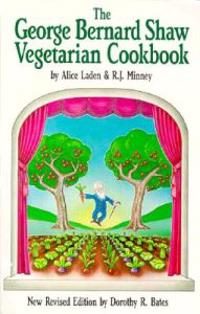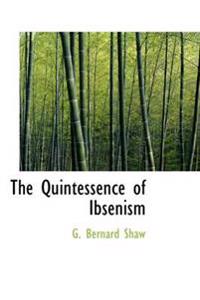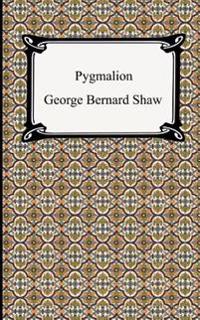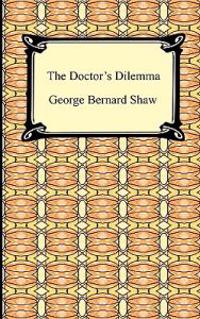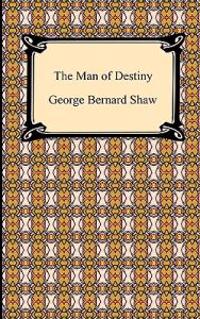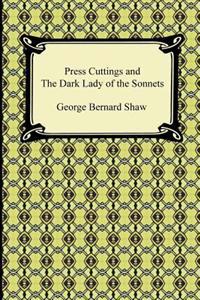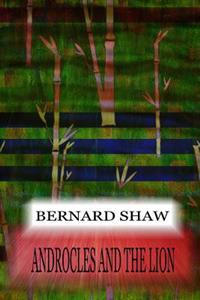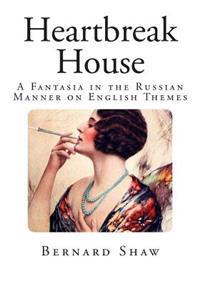St. Joan (Pocket)
avGeorge Bernard Shaw
ISBN: 9780582077867 - UTGIVEN: 1991-11-18Seventeen-year-old Joan of Arc is told by voices from God that she will drive the enemy English army from her beloved country and see the French king crowned at last. This peasant girl succeeds against all odds. Two years later, she is on trial for her life! The penalty will be death at the stake.[...]
George Bernard Shaw (CD-bok)
ISBN: 9780712305310 - UTGIVEN: 2006-09Bernard Shaw was one of the most celebrated English-language writers of the 20th century and a very prominent figure in the early years of radio in Britain.Fuelled by his determination to use radio to promote some of his more controversial views, Shaw made regular broadcasts over a period of almost [...]
Mrs Warren's Profession (Häftad)
avBernard Shaw, Brad Kent, Norma Jenckes
ISBN: 9780713679946 - UTGIVEN: 201211'Shaw's refusal to moralise about the sex trade, only about the system that supports it, provides the play with its dramatic tension and surprising modernity.' Guardian Shaw's 1893 play centres on the mother and daughter relationship between Kitty Warren and her Cambridge-educated daughter, Vivie, w[...]
Pygmalion (Häftad)
avGeorge Bernard Shaw
ISBN: 9780713679977 - UTGIVEN: 200805'Not bloody likely' Ever since Pygmalion opened in London in April 1914 it has proved a very controversial play, from the (then) shocking language, to arguments about its correct ending. Critical interpretations have been similarly disputatious, encompassing views of the transformation of the impove[...]
Arms and the Man (Häftad)
avGeorge Bernard Shaw
ISBN: 9780713679984 - UTGIVEN: 200807"What use are cartridges in battle? I always carry chocolate instead." Cheered by some and booed by others on opening night in 1894, Arms and the Man became the first success of Bernard Shaw's dramatic career that spanned six decades and brought him world-wide renown. In this perennially popular ant[...]
Bernard Shaw and the BBC (Inbunden)
avL. W. Conolly
ISBN: 9780802089205 - UTGIVEN: 2008-12George Bernard Shaw's frequently stormy but always creative relationship with the British Broadcasting Corporation was in large part responsible for making him a household name on both sides of the Atlantic. From the founding of the BBC in 1922 to his death in 1950, Shaw supported the BBC by partici[...]
Bernard Shaw (Inbunden)
avA.M. Gibbs
ISBN: 9780813028590 - UTGIVEN: 200603Bernard Shaw fashioned public images of himself that belied the nature and depth of his emotional experiences and the complexity of his intellectual outlook. In this absorbing biography, noted Shavian authority A. M. Gibbs debunks many of the elements that form the foundation of Shaw's self-created [...]
Bernard Shaw And Totalitarianism (Inbunden)
avMatthew Yde
ISBN: 9781137330192 - UTGIVEN: 2013-09-13This book reveals the genuity of Shaw's totalitarianism by looking at his material - articles, speeches, letters, etc but is especially concerned with analyzing the utopian desire that runs through so many of Shaw's plays; looking at his political and eugenic utopianism as expressed in his drama an[...]
Pygmalion (Häftad)
avGeorge Bernard Shaw
ISBN: 9781420925234 - UTGIVEN: 200501"Pygmalion" is considered to be one of George Bernard Shaw's greatest works. It is the story of how the arrogant phonetics professor Henry Higgins teaches the lowly flower girl Eliza Doolittle to lose her cockney accent and speak like a lady. "Pygmalion" is a witty comedic play that examines the art[...]
Press Cuttings and the Dark Lady of the Sonnets (Häftad)
avGeorge Bernard Shaw
ISBN: 9781420941296 - UTGIVEN: 2011-01Pygmalion (Häftad)
avGeorge Bernard Shaw, Richard S. Hartmetz
ISBN: 9781490496559 - UTGIVEN: 2013-06Heartbreak House: A Fantasia in the Russian Manner on English Themes (Häftad)
avBernard Shaw
ISBN: 9781495947742 - UTGIVEN: 2014-02



